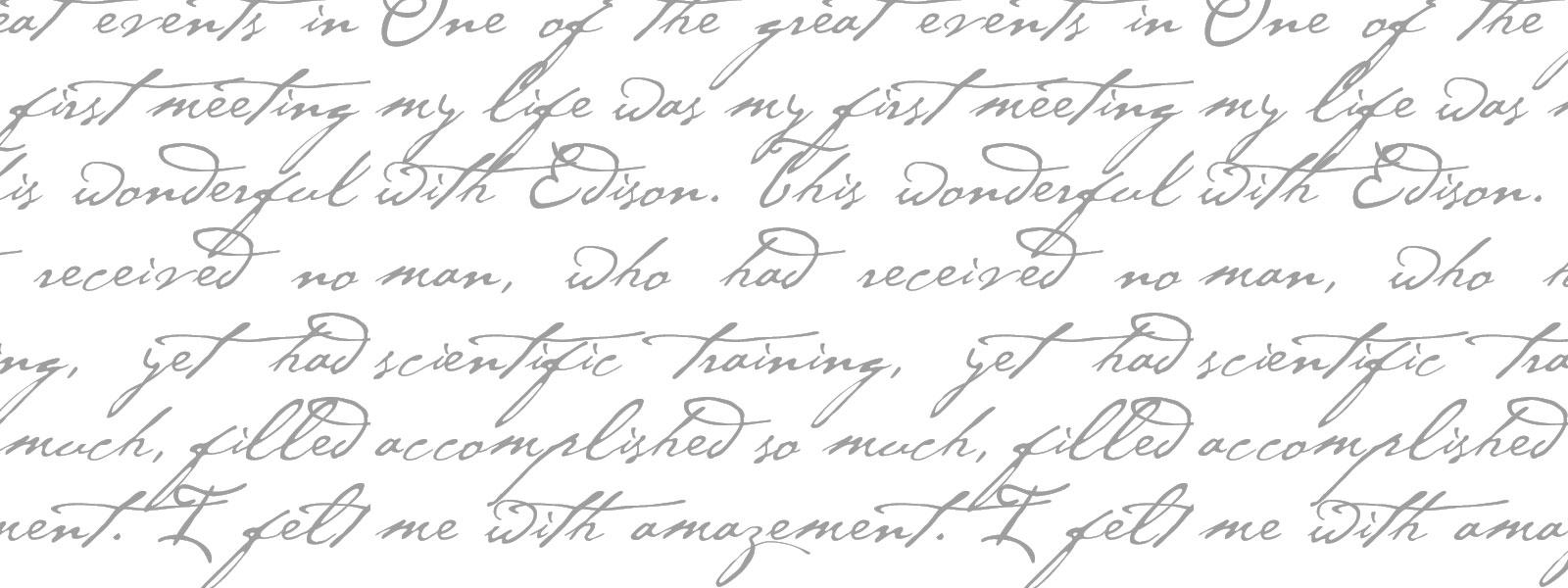
Nikola Tesla Quotes - Page 2
There were many days when [I] did not know where my next meal was coming from. But I was never afraid to work, I went where some men were digging a ditch ... [and] said I wanted to work. The boss looked at my good clothes and white hands and laughed to the others ... but he said, "All right. Spit on your hands. Get in the ditch." And I worked harder than anybody. At the end of the day I had $2.
July 12th, 1937Source:
I have no hesitancy in declaring that the next step in the mastery of man over Nature will be the absolute control of the weather.
November 11th, 1908
The opinion of the world does not affect me. I have placed as the real values in my life what follows when I am dead.
July 23rd, 1934Source:
...Tesla went beyond borders of his exact science to foretell what lies in the future...a modern Prometheus who dared grab after the stars...
January 15th, 1952
If the genius of invention were to reveal to-morrow the secret of immortality, of eternal beauty and youth, for which all humanity is aching, the same inexorable agents which prevent a mass from changing suddenly its velocity would likewise resist the force of the new knowledge until time gradually modifies human thought.
May 19th, 1907
I am being driven to the conclusion that Tesla was the greatest electrical inventor we have had on our roll of membership; in fact we might go as far as to say that he was the greatest inventor in the realm of electrical engineering.
It was the artist, too, who awakened that broad philanthropic spirit which, even in old ages, shone in the teachings of noble reformers and philosophers, that spirit which makes men in all departments and positions work not as much for any material benefit or compensation -- though reason may command this also -- but chiefly for the sake of success, for the pleasure there is in achieving it and for the good they might be able to do thereby to their fellow-men. Through his influence types of men are now pressing forward, impelled by a deep love for their study, men who are doing wonders in their respective branches, whose chief aim and enjoyment is the acquisition and spread of knowledge, men who look far above earthly things, whose banner is Excelsior! Gentlemen, let us honor the artist; let us thank him, let us drink his health!
January 27th, 1897Source:
Our senses enable us to perceive only a minute portion of the outside world.
January 7th, 1905
Power can be, and at no distant date will be, transmitted without wires, for all commercial uses, such as the lighting of homes and the driving of aeroplanes. I have discovered the essential principles, and it only remains to develop them commercially. When this is done, you will be able to go anywhere in the world — to the mountain top overlooking your farm, to the arctic, or to the desert — and set up a little equipment that will give you heat to cook with, and light to read by. This equipment will be carried in a satchel not as big as the ordinary suit case. In years to come wireless lights will be as common on the farms as ordinary electric lights are nowadays in our cities.
April, 1921
How extraordinary was my life an incident may illustrate... [As a youth] I was fascinated by a description of Niagara Falls I had perused, and pictured in my imagination a big wheel run by the Falls. I told my uncle that I would go to America and carry out this scheme. Thirty years later I saw my ideas carried out at Niagara and marveled at the unfathomable mystery of the mind.
March, 1919